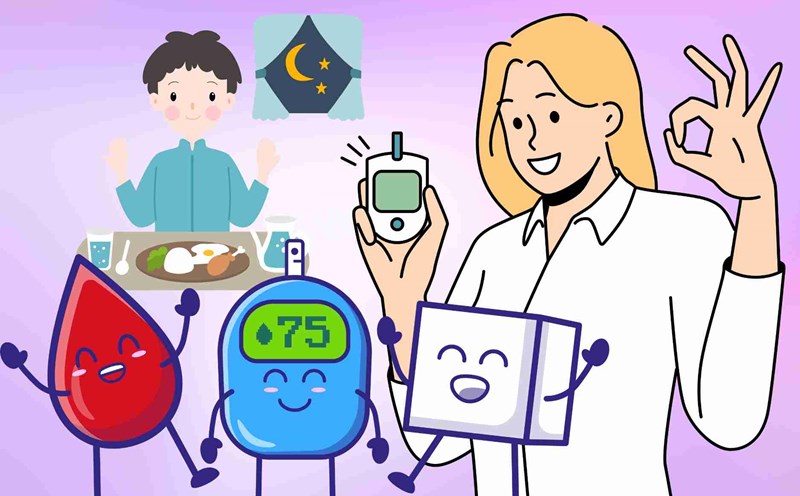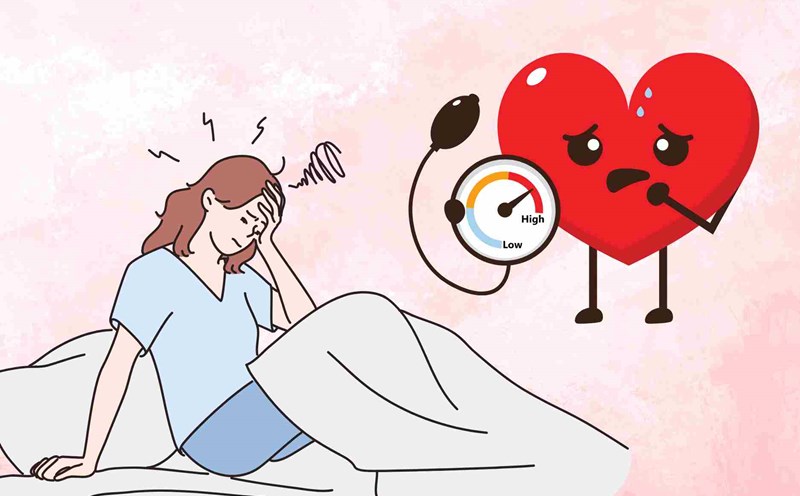Insomnia is a common condition in the elderly, affecting not only the quality of life but also posing many serious health risks. However, insomnia is not an inevitable consequence of aging.
Understanding the causes and having appropriate improvement methods will help the elderly sleep better and live healthier.
Why are the elderly susceptible to insomnia?
According to Help Guide, there are many factors that make it difficult for the elderly to maintain deep and complete sleep. First of all, there are physiological changes, as the body gets older, the natural circadian rhythm is also disrupted. Deep sleep time is reduced, it is easier to wake up in the middle of the night, difficult to fall asleep.
Stress, anxiety or depression are also important causes. Many older adults face major changes in their lives such as retirement, children away from home, loss of loved ones or poor health, leading to feelings of loneliness, insecurity and sleep disturbances.
Chronic diseases such as nighttime, arthritis, chronic pain, cardiovascular disease, diabetes or reflux also contribute to disrupted sleep. Especially in women, premenopause and postmenopause can cause hot flashes, night sweats, factors that hinder deep sleep.
In addition, the use of many drugs, which are popular in the elderly, can also cause side effects that cause difficulty sleeping. In addition, lack of exercise during the day and lack of exposure to natural light make the body not clearly feel the fatigue needed to fall asleep.
Typical sleep disturbances in the elderly such as restless leg syndrome or sleep apnea - conditions that need to be diagnosed and treated medically.
How to improve sleep in old age?
According to Help Guide, most of the causes of insomnia in the elderly can be adjusted if detected promptly. First, experts recommend maintaining a fixed hour of bedtime and wake-up every day, even on weekends. The bedroom should be airy, quiet, dark enough and away from electronic devices that cause distraction.
Gentle exercise such as walking, yoga, and daytime supplements helps consume energy and stimulate the body to produce sleep- supporting hormones. However, avoid strenuous exercise close to bedtime.
Elderly people should limit sleeping too much during the day, avoid drinking coffee or alcohol in the evening, and should not eat too much before bed. Establishing a relaxation routine before bed such as reading, listening to light music, taking a warm bath... can help the brain "prepare" for sleep.
Addressing psychological problems also plays an important role. Talking regularly with relatives, participating in community activities, or simply finding someone to share emotions will help reduce stress - one of the biggest friends of sleep.
If you suspect that your sleep is affected by medication or disease, the elderly should see a doctor for advice on adjusting the prescription or timely treatment. Taking sleeping pills without medical instructions can cause dependence and worsen insomnia.
Finally, exposure to natural light at least 1-2 hours a day, or using light therapy as instructed, can improve natural circadian rhythm and support the production of melatonin - an important hormone for sleep.












